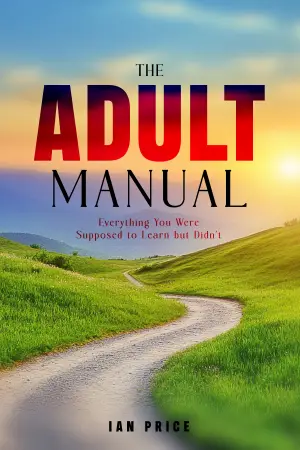A Digital Journey Through Parenting: Review of Second Life: Having a Child in the Digital Age by Hess
When I stumbled across Hess’s Second Life: Having a Child in the Digital Age, I was captivated by its promise to navigate the complex interplay between modern technology and parenthood. As a Millennial myself, I felt an immediate connection, sensing that Hess’s exploration could resonate deeply with my own experiences—and I was curious to see how she articulated the challenges of raising children in a tech-saturated world.
Hess takes readers on a profound journey through the intricacies of conceiving, carrying, and raising a child amidst the noise of the digital age. She deftly touches on many themes—loss, joy, disability, and socio-economic pressures—all set against the backdrop of the relentless advance of technology. What struck me most is the powerful tension between her personal memoir and the broader societal implications she occasionally hints at. For instance, her reflections on miscarriage and the ability to track pregnancies from the moment of conception resonate emotionally. However, I couldn’t help but wish she had dug deeper into the cultural ramifications of these technologies, exploring how they redefine our understanding of pregnancy and parenthood more comprehensively.
Hess’s writing has a warm, conversational tone that invites readers to empathize with her highs and lows. Yet, I found myself longing for more analytical depth, especially regarding the implications of parenting practices in the face of burgeoning tech—like the ways social media shapes perceptions of disability and developmental milestones. Her discussions on the stigma attached to disabilities are poignant but feel diminished, almost overshadowed by her memoir framework. This is where a more sociological lens might have provided the space for more robust critique and exploration.
One standout moment for me came when Hess engaged with the cultural phenomenon of "intensive parenting," particularly how it shifts into a kind of social justice work. Her assertion that Millennial parents justify their labor-intensive child-rearing as a way to cultivate anti-racist children struck me as both enlightening and somewhat troubling. It creates a veneer of social responsibility, allowing parents to sidestep deeper societal issues while focusing inward. I found myself contemplating the ethical implications of this approach, realizing how convenient it can be to transform our parenting choices into the sole narrative of societal contribution.
Ultimately, Second Life is a compelling read that tugs at the heartstrings while prompting vital questions about our modern parenting practices. While I felt that Hess’s commitment to memoir sometimes limited the book’s potential for deeper exploration, it remains a valuable contribution to contemporary discussions around parenthood and technology.
I believe this book will resonate with parents, especially those grappling with the challenges of raising children in a world dominated by screens and social media. It’s a thoughtful reflection that encourages readers to examine their own parenting choices through a critical lens, providing not only a memoir but also a conversation starter about the future of parenthood in our increasingly digital lives. Reading it left me pondering the delicate balance between nurturing and technology—a journey I suspect many of us are navigating together.
Discover more about Second Life: Having a Child in the Digital Age on GoodReads >>






